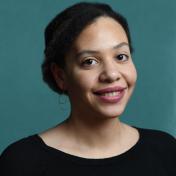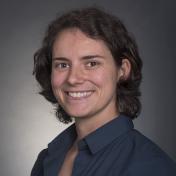Doctoral
- Image

Building 7, MIT
The Department of Urban Studies and Planning offers a degree in a Doctor of Philosophy in Urban Studies and Planning which is an advanced research degree in planning or urban studies and is focused on training individuals for research and teaching in the areas of applied social research and planning.
Current Students
Daniel Engelberg
 Doctoral Candidate
Doctoral CandidateYichun Fan
 Doctoral Candidate
Doctoral CandidateEnjoli Hall
 Doctoral Candidate
Doctoral CandidateCarmelo Ignaccolo
 Doctoral Candidate
Doctoral CandidateAarthi Janakiraman
 Doctoral Candidate
Doctoral CandidateJustin Kollar
 Doctoral Candidate
Doctoral CandidateKevin Lujan Lee
 Doctoral Candidate
Doctoral CandidateDení López
 Doctoral Candidate
Doctoral CandidateArianna Salazar Miranda
 Doctoral Candidate
Doctoral CandidateChenab Navalkha
 Doctoral Candidate
Doctoral CandidateSoyoung Park
 Doctoral Candidate
Doctoral CandidateLidia Cano Pecharroman
 Doctoral Candidate
Doctoral CandidateBenjamin Preis
 Doctoral Candidate
Doctoral CandidateGokul Sampath
 Doctoral Candidate
Doctoral CandidateWonyoung So
 Doctoral Candidate
Doctoral CandidateAndrew Stokols
Doctoral CandidateAnna Waldman-Brown
 Doctoral Candidate
Doctoral CandidateDarien Alexander Williams
 Doctoral Candidate
Doctoral CandidateLizzie Yarina
 Doctoral Candidate
Doctoral Candidate
Doctor of Philosophy in Urban Studies and Planning
The Doctor of Philosophy in Urban Studies and Planning program emphasizes the development of fundamental research competence, flexibility in the design of special area of study, and encouragement of joint student/faculty research and teaching. The program is tailored to the needs of individual students, each of whom works closely with a custom ecosystem of scholars in their field and a mentor in the Department.
DUSP graduates are well prepared for (and go on to work in) a wide range of careers in academia, government, and industry.
Admissions
Admissions for the doctoral program emphasizes academic preparation, professional experience, and the fit between the student's research interests and the department's research activities. Nearly all successful applicants have previously completed a master's degree. Admission to the doctoral program is highly competitive.
Core criteria and guidelines for doctoral admission decisions:
- Application strength: cohesiveness of statement, compelling research topics, preparedness for doctoral level work.
- Alignment with Departmental research priorities: achieving racial justice, tackling the climate change, enhancing democratic governance, and closing the wealth gap
- Advisor-Advising Committee Match
- Could an applicant work with more than one DUSP faculty on their committee?
- Does applicant have a strong match with at least one lead faculty?
- Instructorship match
- What core classes might applicant be able to TA within DUSP?
-
11.001J Introduction to Urban Design & Development
-
11.002 Making Public Policy
-
11.005 Introduction to International Development
-
11.200 Gateway I
-
11.201 Gateway II
-
11.202/203 Microeconomics
-
11.205/11.188 Introduction to Spatial Analysis
-
11. 220 Quantitative Reasoning
-
11.222 Introduction to Critical Qualitative Methods
-
- What core classes might applicant be able to TA within DUSP?
- Cross-cutting substantive areas – research of interest to multiple DUSP program groups and strategic priorities
Process:
- In statements of purpose, applicants are welcome to name faculty members, in DUSP, with whom they wish to: collaborate, seek as an advisor, or under whom they wish to work. We encourage applicants to consider the ecosystem of faculty advisors they might work with if admitted to DUSP.
- If you reach out to a faculty member directly and they have not responded before you complete your application, please note that no response does not reflect a judgement. Faculty have many time commitments and may be unable to answer your request quickly.
- Please do not expect detailed feedback on your statements of purpose or your CVs from faculty in advance of your application submission.
- Please do note DUSP students offer Peer Application Support Services (PASS), supporting students who may face structural barriers in applying, including (but not limited to) international applicants, first generation college students, and applicants who identify as Black, Indigenous, Latinx, queer, disabled, and/or a person of color.
- DUSP doctoral admissions is run by committee, not by individual faculty members. In short, this means that no one faculty member independently decides to admit a student.
- Faculty members do on occasion recruit students for their externally funded research, but those student's admission is still decided by committee.
Advising
Each doctoral student has an assigned faculty academic advisor with whom they should develop a plan of study. All faculty are concerned with promoting good personal and academic relationships between students and advisors. Faculty advisors are responsible for: approving the registration for the doctoral student at the beginning of each semester, reviewing the student's progress, meeting with their advisee on a regular basis, and alerting the student and Department Headquarters if any issues arise concerning satisfactory progress towards completing the student's degree requirements.
If the student is nonresident, the student and faculty should communicate on a regular basis with each other concerning the progress being made, the timing to be determined jointly by the student and faculty member.
Advisees may request switching advisors. Initiating a change in advisors is the responsibility of the student. The student should:
- Talk to the other faculty member about her/his willingness to serve as a doctoral advisor;
- Inform the current advisor about the desired change in advisors (ideally the decision would be made in discussions with the current and future advisor);
- If the issue becomes complicated, discuss the move with the Head of the PhD Committee;
- Inform the Doctoral Program Academic Advisor.
Addition resources for roles, relationships, and advising best practices may be found here. Student support resources may be found here. Additional information on doctoral student advisee/advisor relationship may be accessed via the DUSP Handbook.
Funding and Responsibilities for DUSP Doctoral Students
The Department admits five to seven students a year to the doctoral program. All admitted students receive funding for five academic years, including the option of summer work. In addition, some students are admitted with five academic years of funding as part of a research project sponsored by a faculty member and/or external funding.
Departmentally-funded students commit to completing five teaching assistantships and three research assistantships during their time as students at DUSP. The department also issues a call for optional funded summer work during the spring term.
Degree Requirements
Required Coursework
- Research Design and Methodology (11.233)
-
In their first (fall) semester, students are required to take 11.233. There are no exceptions nor substitutions to this requirement. The output of this class is a research proposal that can form the basis for the required first-year research paper.
-
- Doctoral Research Seminar (11.800)
-
The Doctoral Research Seminar focuses on writing a research paper - the first year paper (FYP) - on a subject of the student's choice. The paper's purpose is to assess the student's ability to independently make a reasoned argument based on evidence that they have collected and to allow the student to work closely with a faculty advisor.
-
Students are expected to finish the paper in the spring of their first year, and students CANNOT register for their third semester of courses until this paper has been completed.
-
-
-
Methods Courses
-
All PhD students must complete one graduate-level class in quantitative methods and one graduate-level class in qualitative methods from a list of approved subjects by the end of their fourth semester. Enrolled doctoral students may consult the PhD Wiki pages for community collected information on methods courses of interest to DUSP PhD students:
-
In addition, students are strongly encouraged to enroll in DUSP's Advanced Seminar on Planning Theory (11.930).
Field Exams (General Exams)
General Exams will ordinarily be taken either in late spring of the second year or in early fall of the third year. These examinations contain a written and an oral component. All PhD students are expected to prepare for an examination in two fields. The first field is theory oriented and must be a discipline or equivalent systematic approach to social inquiry. The second field is typically customized to student specializations.
- First Field
- City Design & Development
- International Development
- Urban Information Systems
- Public Policy and Politics
- Health and Global Communities
- Urban History
- Urban and Regional Economics
- Urban Sociology
- Second Field (Examples)
- Environmental Planning and Natural Resource Management
- Housing and Real Estate Development
- Labor and Employment Policy
- Neighborhood and Community Development
- Negotiation and Dispute Resolution
- Planning in Developing Countries
- Regional Development
- Transportation and Land Use
Dissertation
Summary and Full Dissertation Proposal
Within three months after successful completion of the general examinations, each PhD candidate is expected to submit to the PhD Committee a five-to six-page preliminary dissertation research proposal summary.
- The proposal should include the dissertation topic, the importance of the topic, the research method, the types of information to be used, the means of obtaining the required information (surveys, statistical testing, literature, etc.), and a selected bibliography.
- The preliminary dissertation proposal must be approved and signed by the dissertation advisor on the student's committee. The dissertation committee must be chaired by a member of DUSP and include at least one other member of the MIT faculty.
- Membership of the general examination and dissertation committees need not overlap.
Within one year after passing the general examinations, the student must submit a full proposal to their dissertation committee and for approval by the PhD Committee. Full proposals should expand upon the topics covered in the preliminary proposals and must be signed by all members of the student's dissertation committee. An external reviewer will be invited to provide feedback as well.
- In this proposal (usually 25-30 pages in length), the student should provide details on the research design and preliminary ideas (e.g., hypotheses) that will guide the research effort. They should also discuss the relevant literature and potential data sources.
- All students are expected to organize a colloquium in which they discuss their dissertation proposal before their full committee, the external reviewer, and other interested members of DUSP and MIT more generally. The student is expected to notify all DUSP members of the time and place of the colloquium and the dissertation proposal cannot be approved until the colloquium has been held. No colloquia will be held during the last two weeks of the semester, or final exam week, or during the summer.
Oral Dissertation Defense
After the dissertation committee and the student indicate that the dissertation is completed, the committee chair will ask for the student to appear for an oral examination. The oral examination will customarily last for two hours and will be attended by all members of the dissertation committee. Other faculty and/or students may be allowed to attend the oral examination at the discretion of the dissertation committee. If revisions, normally slight, to the dissertation are suggested by the committee, the committee chair may be solely in charge of approving the revised document. If major revisions are needed, all members of the committee need to review the revised document, and, in some cases, another oral examination may be required.
Guidelines for preparation of the dissertation document are available from DUSP's PhD Academic Administrator. The student must follow these guidelines carefully. All final dissertation document are submitted electronically. Students will be removed from the degree list for graduation if the appropriate dissertation documents are not met by the deadline set each semester by DUSP. All PhD dissertations are graded on a satisfactory basis.
Written Dissertation Options
In addition to the traditional monograph (i.e. a book-length manuscript), students may opt for a three-paper dissertation.
The three-paper option is based on three related publishable papers and is designed to be used in situations where the thesis material is better suited to three papers on the same general topic rather than turning the dissertation into a book. A dissertation cannot be comprised of essays on three totally separate topics.
- Both the summary and full dissertation proposal are still required, with a dissertation committee consisting of a chair and two readers. The three-papers option should represent different aspects of the same topic.
- A student wishing to submit a three-paper dissertation should propose this plan at the time they submit the initial dissertation summary proposal or, if a decision to do so is made only subsequently, the student should indicate this plan as part of the full dissertation proposal that is submitted to the PhD Committee in advance of the Dissertation Proposal Colloquium.
- One paper in a three-paper dissertation may be co-authored. In such cases, as part of the full Dissertation Proposal, the student should explain the rationale for the proposed co-authorship. The PhD committee representative charged with evaluating the dissertation proposal will be asked to review this to determine the significance of the student's role in the collaborative paper. If there is a change in the plan for co-authorship after the Dissertation Proposal Colloquium has taken place, this must be cleared with the PhD Committee.
- In meeting the criterion of “publishable papers,” the dissertation may include a paper that has been previously published, as long as this paper has been completed as part of the student's doctoral program at MIT.
- A student's First Year Paper may not be used for one of the three papers submitted for the dissertation, unless it has been significantly revised and updated.
- Finally, the three-paper dissertation itself must contain a section that explains how the three papers are related.
A note on completing your dissertation during the summer:
Please be aware that most DUSP faculty are on nine-month contracts, and are not paid to teach or work with students during June, July, and August. Accordingly, any student seeking to complete PhD thesis work over the summer in order to be placed on the September degree list must be certain about the willingness of the advisor and readers to take on this responsibility. Any student seeking this arrangement must submit a form signed by all members of the advising team, attesting to their willingness and summer availability. This form should be submitted to the PhD Academic Administrator no later than the Spring thesis due date. Failure to do so may result in removal from eligibility for the September degree list. If this happens, a student would need to submit their thesis and hold the defense during the fall term, and would need to pay the pro-rated fall semester's tuition if beyond the funded five academic years.
Sample Schedule by Milestones
Year One
- First year paper proposal
- Advisor sign-off required
- Advisor sign-off required
- First-year paper
- Advisor sign-off required
- First-year review
- With members of PhD Committee required
Year Two
- Determine first and second field exams interests
- Assemble general exams committee
- Share draft exams proposals
- General exam committee sign-off required
- Complete course work preparation for general exams
- Complete and defend field exams (end of spring)
- General exam committee sign-off required
- Complete second-year review statement and meeting
Year Three
- Complete and defend field exams (fall term of third year, if not completed in second year)
- General exam committee sign-off required
- Complete dissertation summary
- Advisor sign-off required
- Submit dissertation proposal
- Dissertation committee and external reviewer sign-off required
- Complete and pass dissertation colloquium
- Dissertation committee and external reviewer sign-off required
Year Three+
- Complete further coursework - if helpful to dissertation
- Research and write dissertation
Year Four+
- Submit dissertation
- Dissertation chair and committee members
- Revise dissertation as necessary
- Hold colloquium and defend dissertation
- Dissertation chair and/or committee sign-off required
- Revise dissertation as necessary
- Submit completed dissertation to department
- Graduate
Important Early Dates (Guide by Semester)
First Semester
- Start of semester
- Meet with your assigned faculty advisor
- Determine who will be your faculty advisor for your First-Year Paper (FYP)
- End of semester
- Complete FYP research proposal
Second Semester
- Start of semester
- Work on FYP, including fieldwork during IAP if necessary
- End of semester
- Submit your First-Year Paper
- Schedule your First-year Review
- Write a draft program statement/First-year Review and share it with your faculty advisor and your assigned faculty representative from the PhD Committee
- At least two weeks before First-year Review at the end of second semester.
- Take any recommended actions after First-year Review meeting
Third Semester
- Start of Semester
- OPTIONAL schedule a presentation of your First-Year paper in the PhD Colloquium series
- Throughout the Semester
- Determine your first and second field exams interests
- Explore who will chair and comprise your General Exams committee
- Your chair must be a member of DUSP faculty
- Discuss with your Examination Committee chair who else will sit on your Examination Committee
- at least another two faculty members, at least one of whom must be a member of the MIT faculty
- at least another two faculty members, at least one of whom must be a member of the MIT faculty
Fourth Semester
- Start of Semester
- Schedule your first and second field examinations
- Throughout the Semester
- Finalize and submit your examination proposal (reading list and sample questions)
- sent to the members of your exam committee
- sent to DUSP's PhD Academic Administrator at least one month before taking your general exams
- Finalize and submit your examination proposal (reading list and sample questions)
- End of the Semester
- Prepare your second-year review statement and schedule meeting
- with PhD Committee member and your advisor
- take any necessary actions following meeting
- Take your first and second field examinations
- Submit a preliminary dissertation research proposal summary
- within three months of finishing general exams
- Explore and decide who will chair your Dissertation Committee
- Think about and discuss with your Dissertation Chair who else will sit on your Dissertation Committee
- Prepare your second-year review statement and schedule meeting
Fifth Semester
- Start of Semester
- If exams are not completed in your second year, please note you must complete your general exams by the end of your fifth semester. Please refer to semester four for more details.
- Throughout the Semester
- Meet with your Dissertation Committee chair to discuss your dissertation proposal
- Write a draft dissertation proposal for feedback from your Dissertation Committee
- End of the Semester
- Circulate your dissertation proposal to your Dissertation Committee
- Schedule a colloquium on your dissertation proposal
Past Dissertations
This embedded table shows recent dissertation research by the doctoral community. A more complete listing of DUSP dissertation work can be found here.
Additional Resources
Additional resources for DUSP doctoral students may be found in DUSP's Resources, Policies, and Procedures page under general, funding sources, professional development, students, and doctoral students.
Contact
We welcome any questions you have about the DUSP doctoral program.
- Questions, concerns, and/or complaints regarding registration, enrollment, leaves, exams and/or other student requirements should be addressed to Sandra (Sandy) Welford.
- Questions, concerns, and/or complaints regarding regarding the doctoral student process should be addressed to the PhD Committee co-Chairs (see DUSP Governance)


